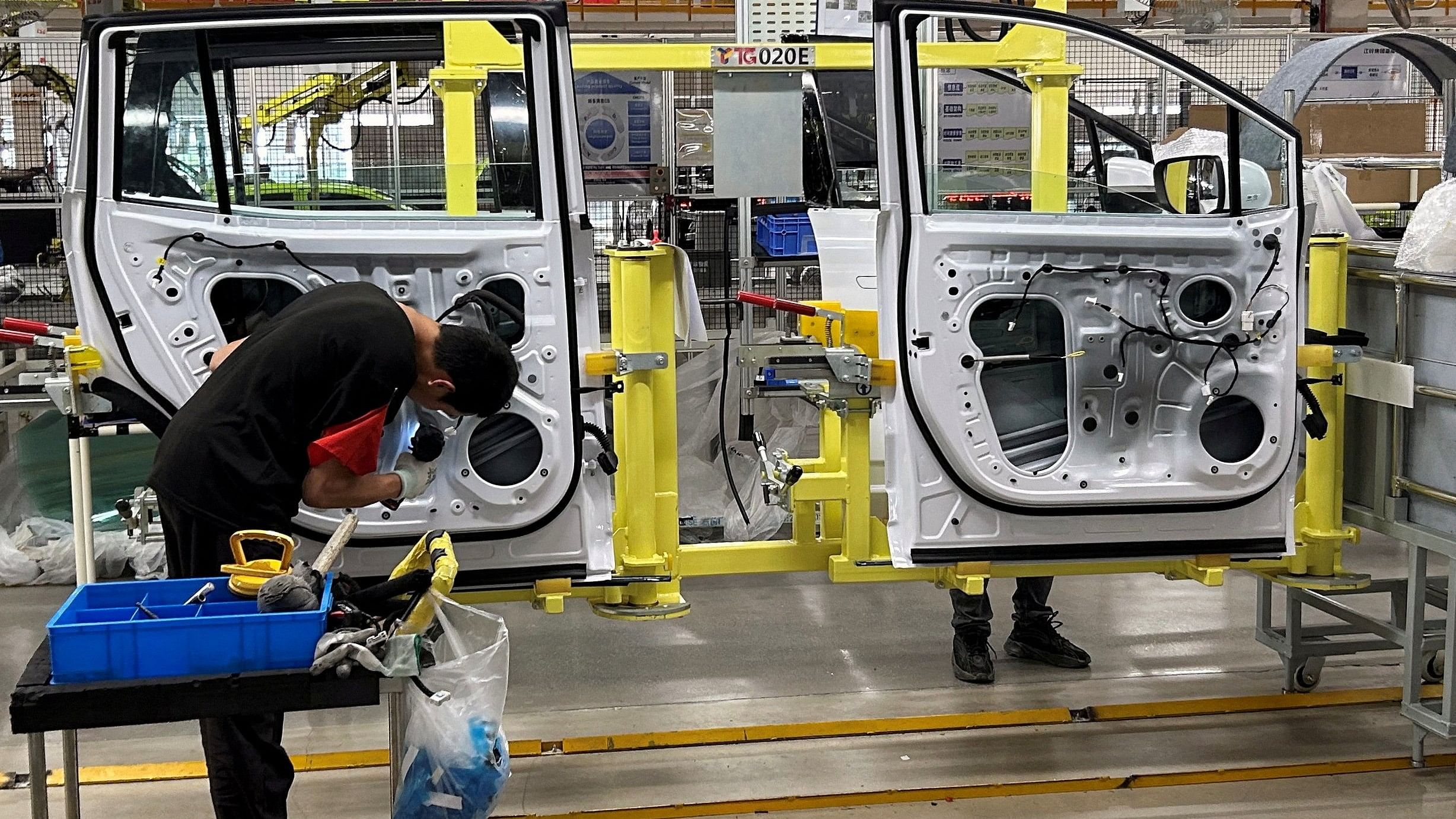
Image for representation.
Credit: Reuters Photo
New Delhi, July 17: A central government science advisory body has come out with a Rs 1150 crore road map to aid India leapfrog into an electric vehicle era by developing technologies needed in four different verticals including EV batteries.
Prepared by the Office of the Principal Scientific Advisor, the e-mobility R&D roadmap that promises a drastic reduction on vehicular pollution level, identifies research opportunities on next generation batteries, new materials, electric motors, magnets, semiconductors and charging infrastructure.
“India aims to achieve a 45 per cent reduction in emission intensity by 2030 and energy independence by 2047 to reach net-zero commitment by 2070. A significant part of this vision will require the wider adoption of electric vehicles, manufacturing of indigenous energy storage systems, and generation of renewable energy to feed charging infrastructures,” Ajay Sood, the Principal Scientific Advisor who spearheaded the effort, said in a statement.
The budgetary plan is split into two distinct verticals – Rs 669 crore for R&D and Rs 482 crore for demonstrating the laboratory success through a pilot programme. The aim is to localise a lion’s share of the EV technologies in the next 5-7 years.
Asserting that e-mobility in India heavily depends on imports at the moment, Sood said reduction on import dependency in the sector could happen by strengthening domestic R&D capabilities in the automotive sector.
The BJP-led central government has set an ambitious EV penetration target. According to the plan, 30 per cent of newly registered private cars, 40 per cent of buses, 70 per cent of commercial cars and 80 per cent of 2-wheelers and 3-wheelers will be electric vehicles by 2030.
But government vehicle registration data compiled by Clean Mobility Shift, a platform that documents India’s progress on electric mobility, show that only 2.2 per cent of new 4-wheelers, 3.3 per cent of buses and 5.3 per cent of 2-wheelers in 2024 are EVs. A substantial growth of 53 per cent is seen only in the category of 3-wheelers dominated by e-rickshaws.
Experts are concerned that India is currently unprepared for large-scale, sustainable EV expansion.
Many technologies needed for EV components are "outside the current capability of domestic industries" and require "persistent and pervasive imports in the EV sector", a report from the Department of Science and Technology had cautioned earlier this year.
The roadmap – prepared in consultation to the industry – identifies 24 high priority and 10 moderate priority research projects, outlining gaps in technologies, project targets, deliverables, possible timelines, and even names of institutions with the requisite human resources that could take them up.
Some of the research areas relate to fundamental science-based manufacturing of graphene, development of new materials, and addressing production engineering-linked challenges for complex items like fuel cell separators. Many of the research projects, the report says, are high-risk ones.
“If we do not take these actions now, we are likely to be in the same situation a few years down the line, where other countries have taken risks and invested in upcoming new ideas and we are left depending on them,” Sood said.
While a majority of the items identified are projects where success is not yet achieved even globally, a few are items where other countries have already achieved significant success and India are yet to follow their path.
“These projects are included in order to ensure that there is sufficient foundation for the country to take up future innovations in that space as and when opportunities arise,” the report notes.
